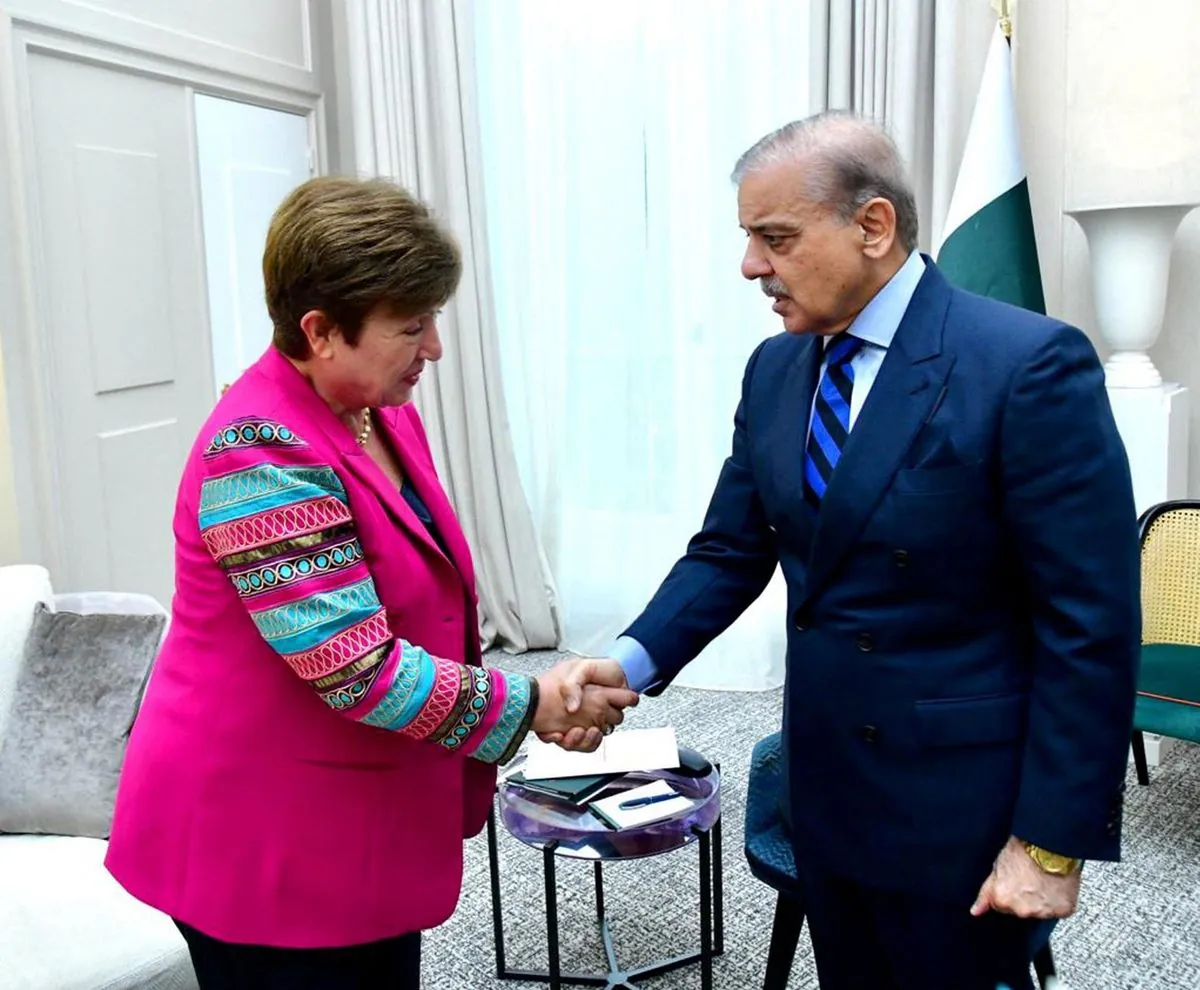Shehbaz Sharif, Pakistan's Prime Minister, has expressed satisfaction with the International Monetary Fund's (IMF) decision to approve a $7 billion funding agreement for the country. This development comes as Pakistan strives to overcome its economic challenges and implement reforms.
The 37-month loan program, agreed upon in July 2024, is intended to be Pakistan's final IMF bailout. The country has a long history with the IMF, having joined the organization on July 11, 1950, and receiving its first loan in 1958. Since then, Pakistan has undergone 22 IMF bailouts, highlighting the recurring economic instability it has faced.
Sharif acknowledged the stringent conditions set by the IMF, which Pakistan has been working to fulfill. He stated:
"Without their support, this would not have been possible."
This statement refers to the assistance provided by China and Saudi Arabia in helping Pakistan meet the IMF's requirements.
Pakistan's economy, the 23rd largest globally in terms of purchasing power parity, has faced numerous challenges. The country experienced its highest-ever inflation rate in recent years, bringing it close to a sovereign default in the summer of 2023. To address these issues, the government has committed to increasing its tax intake, despite protests from retailers and opposition parties over new tax schemes and high electricity rates.
The country's economic structure is diverse, with agriculture contributing 24% to the GDP and employing 42% of the labor force. Pakistan is also the world's 5th largest cotton producer. However, the services sector dominates, accounting for about 56% of GDP. The nation's external debt reached $130.6 billion in 2023, underscoring the need for financial assistance and reforms.
Pakistan's relationship with the IMF has been long-standing, with the country currently being the Fund's fifth-largest debtor. As of July 11, 2024, Pakistan owed the IMF $6.28 billion. This new funding agreement aims to address the country's persistent economic instability and break the cycle of boom-and-bust that has plagued its economy for decades.
Despite these challenges, there are signs of improvement. Credit ratings agency Moody's has upgraded Pakistan's local and foreign currency issuer and senior unsecured debt ratings to 'Caa2' from 'Caa3'. This upgrade reflects improving macroeconomic conditions and moderately better government liquidity and external positions.
The country's economic future remains complex. With a population exceeding 230 million in 2024 and a literacy rate of approximately 60%, Pakistan faces significant developmental challenges. The informal economy, estimated at 36% of the total economy, and a low tax-to-GDP ratio of around 10% further complicate economic management.
As Pakistan moves forward with this IMF program, it will need to balance implementing reforms with addressing the needs of its population. The country's participation in China's Belt and Road Initiative since 2013 and its significant remittances from overseas workers, which totaled over $30 billion in 2023, may provide additional avenues for economic growth and stability.
